Reflections of former Presidents of the European Parliament: Josep Borrell Fontelles
The Presidency of the European Parliament is a privileged vantage point for observing the life of the European Union and all the affairs of a globalised world, all of which are reflected in the work of the EP.
My 30 months in office were full of historic moments: EU enlargement; the rejection of the Constitutional Treaty and the search for alternative solutions; relations with our neighbours, whether close or more distant; and the new problems of immigration, energy and terrorism. For these reasons, being President of the EP was the most enthralling experience of my political life, and it is not easy to summarise them.
The European Parliament is the only Community institution directly elected by the European citizens, and thus which embodies the democratic principle within the EU’s institutional structure. Although it still lacks some of the classical powers characteristic of parliamentary assemblies, such as adopting taxation rules, it does have important legislative, budgetary and control remits. And it exercises its powers by means of a highly consensual political process, radically different from that of national parliaments, where the relationship between government and opposition is essentially conflictual.
Unlike the Council, where the national interests of the Member States are represented and set against one another, the EP represents the general interest of Europe’s citizens, and its task is to seek consensus on Community policies. I sincerely believe that this remit acquired real strength over the course of the sixth legislature, during which the EP came of political age.
Enlargement was a feature of my Presidency. On 20 July 2004 I found myself heading a Parliament of 732 Members from 25 countries, representing 163 political parties and using 20 official languages. Two and a half years later, on 1 January 2007, following the accession of Romania and Bulgaria, there were 785 Members and, with the addition of Irish, 23 languages.
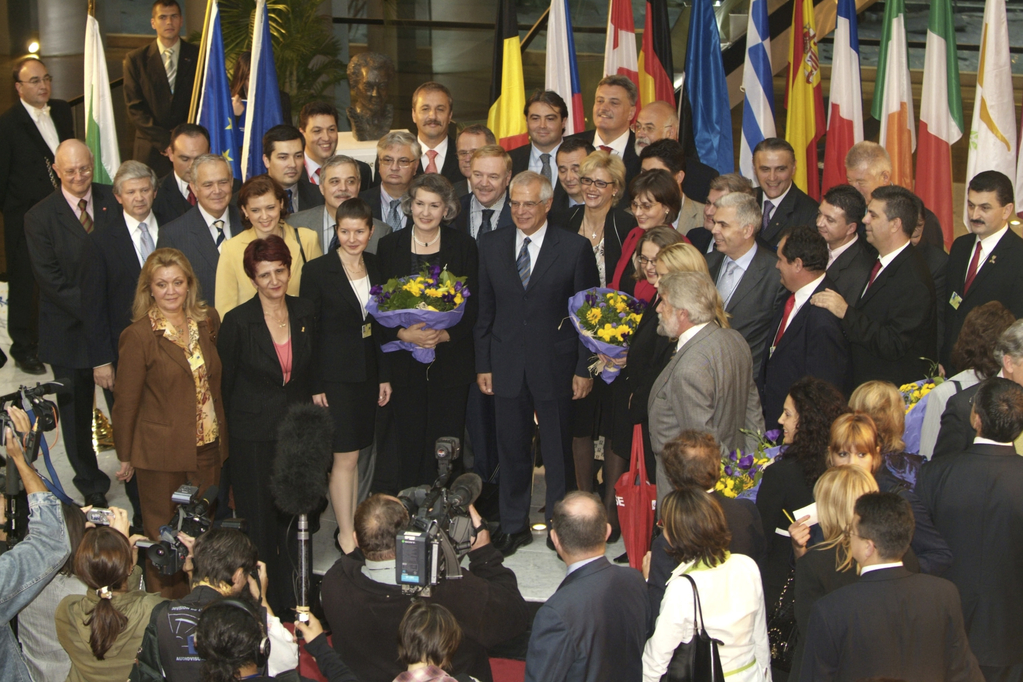 Family photo of the new Bulgarian and Romanian Observers © European Union 2005 – European Parliament
Family photo of the new Bulgarian and Romanian Observers © European Union 2005 – European Parliament
Furthermore, 60% of the Members were new to the EP in 2004, and 168 came from the 10 new Member States. I myself was a ‘newcomer’ and the scale of the change made me feel slightly dizzy, given its dimensions and the complexity of running an institution which was having to take on board a far more heterogeneous experience of what politics is. But the enlarged EP passed the test with flying colours and continued to operate surprisingly normally, thanks to the work of its staff and services, and in particular, the former Secretary-General, Julian Priestley, who was the real architect of this success.
Over and above this major structural transformation, there were specific moments of particular significance. Amongst the most important, perhaps, and certainly in media terms, was the investiture of the Barroso Commission, when Parliament’s hearings led to the withdrawal of the proposed Commission in the face of certain rejection by the EP.
In this whole process, the EP consolidated its political role and ceased to be the paper tiger that many people used to say it was. It dared to make use of the powers conferred on it by the Treaties, without provoking any kind of crisis in the way the EU operates. It was crystal clear that the hearings of the Commissioners were no mere formality, nor did the MEPs fall into line with the instructions issued by Member State governments, as a lot of people assumed they would. Following the rejection of the initial proposal for the Barroso Commission – although only one of the proposed members was in fact rejected – the EP would no longer be seen as a ‘cage of crickets’ or a useless talking shop.
As I said at the time, it is simply not possible to assign powers to an institution elected by direct universal suffrage on condition that the institution does not then use these powers. The EP did use them, as part of normal democratic practice, and the influence thus achieved has strengthened its role within the Union’s institutional triangle.
Alongside my memory of that historic and polemical moment, I must mention two other moments, one particularly solemn and positive, and the other extremely sad. The first was the signing of the Constitutional Treaty in the impressive Hall of the Orazi and Curiazi on the Capitol in Rome. On that occasion, I had the chance, on behalf of the European Parliament, to address to the gathered Heads of State and of Government some words on the path that EU integration had taken since the first such gathering in Rome. At that point, of course, we did not know that the text was going to get bogged down in the French and Dutch referenda, and so that historic moment represented the cusp of Europe’s political ambitions, unfortunately somewhat diminished today.
The other moment that is fixed in my memory was when I had to announce to the House in plenary just how tragically serious the July 2005 terrorist attacks in London had been, attacks which reminded me so strongly of those in Madrid.
There were other politically significant moments, but I cannot list them all here. The EU Russian Summit dinner in Lahti, Finland, where I had to tell President Putin, seated next to me, that Europe should not be exchanging human rights for energy supplies. My speeches, only a few hours apart, to the Knesset in Jerusalem and the Palestinian National Assembly in Ramallah. My visit to Cairo to chair the Euro-Mediterranean Parliamentary Assembly, from which the EP carried out important mediation work in the dispute over the Danish cartoons of Mohammed. And, right at the end of my mandate, the establishment of the Eurolat Parliamentary Assembly, which unites the EP and Latin America. I put a great deal of effort into this project, in a race against the clock, surrounded by a fair amount of unwillingness. I was briefly co-President of the Assembly, with all the satisfaction it gave me to have managed to increase the amount of attention the EP devotes to Latin America.
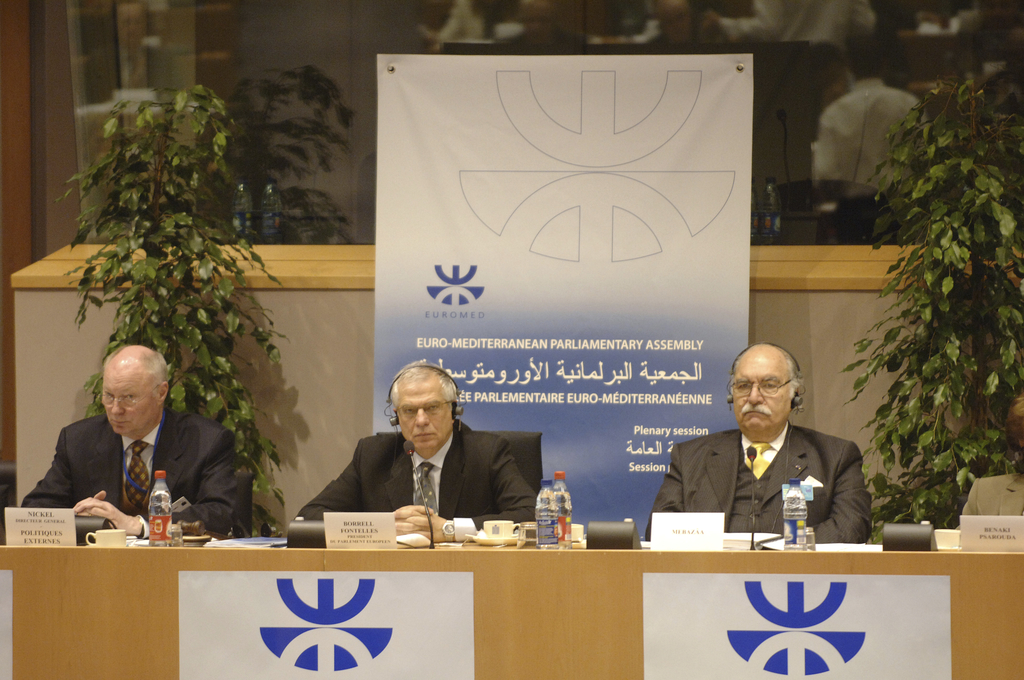 Plenary session of the Euro-Mediterranean Parliamentary Assembly (Euromed). Dietmar Nickell (L), Josep Borrel Fontelles (C), Fouad Mebazaa (R) © European Union 2006 – European Parliament
Plenary session of the Euro-Mediterranean Parliamentary Assembly (Euromed). Dietmar Nickell (L), Josep Borrel Fontelles (C), Fouad Mebazaa (R) © European Union 2006 – European Parliament
I was also able to experience how large Europe’s role in the world is in terms of its cooperation projects, from the Niger arc to the Colombian highlands, and the importance of Europe’s military peace-keeping presence, e.g. in Lebanon, which I visited immediately after the summer 2006 bombardment, to invite the Lebanese Prime Minister to address the EP.
The world is really crying out for Europe. And the EP has tried to respond to this demand, by strengthening ‘parliamentary diplomacy’, as it was already being called. For example, it sent electoral observation missions to 26 countries, including Ukraine, Palestine, Afghanistan, Congo and Venezuela. And the EP has become an important world forum, visited by 15 heads of state from non-EU countries, such as Evo Morales and Mahmud Abbas.
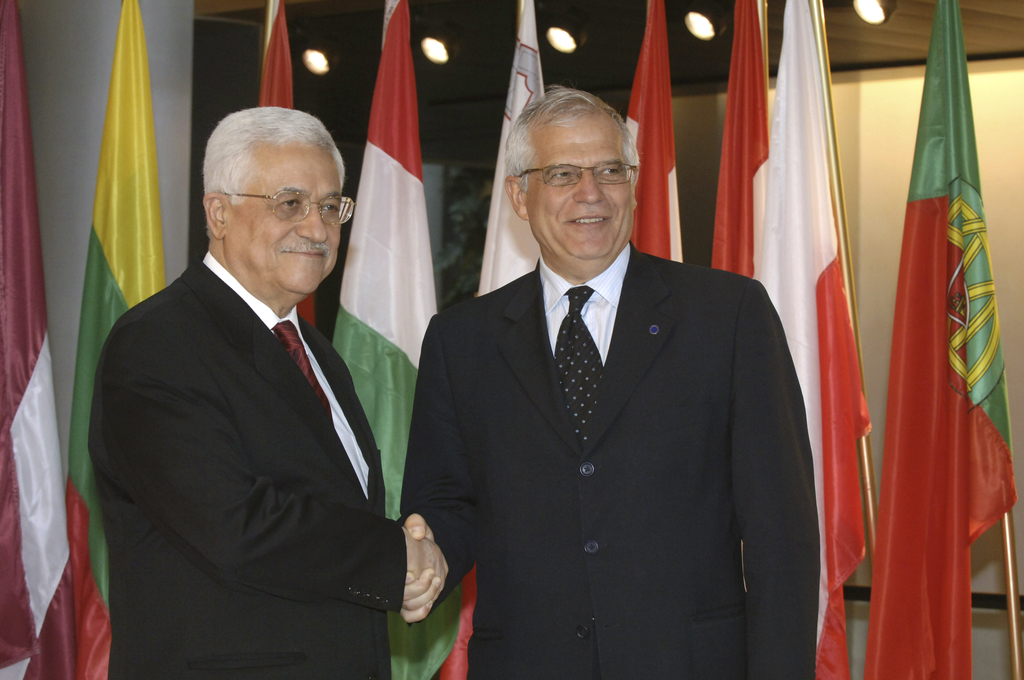 EP President Josep Borrell Fontelles (R) meets with President of the Palestinian Authority Mahmud Abbas (L) in Strasbourg © European Union 2006 – European Parliament
EP President Josep Borrell Fontelles (R) meets with President of the Palestinian Authority Mahmud Abbas (L) in Strasbourg © European Union 2006 – European Parliament
I must not pass over in silence a whole series of bills whose passage into law underlined the role of the EP.
The REACH Directive on chemical substances, for example (one of the most technically complex pieces of legislation to pass through the House), in which the amendments pushed for by Parliament acknowledged the principle of industry answerability and consumer protection. It achieved a difficult balance between the precautionary principle and the demands of competitiveness.
The EP also played a significant role in the rejection of the software patents directive (where for the first time in history, Parliament rejected a directive at second reading under the codecision procedure); the rejection of the port services directive, which the Commission definitively withdrew; and, above all, the so-called Bolkestein Directive on liberalising services, which gave birth to the ‘Polish plumber’ myth, and which was substantially modified on its passage through Parliament.
In the Bolkestein Directive, the EP implicitly exercised a role which the Treaties reserve for the Commission, namely that of initiating legislation. Given the difficulties encountered in amending the Directive in Council, and the Commission’s inability to withdraw it, it ended up being Parliament which had to seek consensus between all the many opposing interests amid all the confusion spawned by the text and its various interpretations. This was a thorny challenge which Parliament successfully pulled off, preventing a conflict between new and (some) old Member States.
As a whole, this legislative work displays the success of a Parliament which manages to achieve agreements on Commission legislative proposals which had not, perhaps, taken adequate account of the new situation created by enlargement, and which got bogged down in Council. It was a source of great personal satisfaction to me to see how the new, constructive and effective role of the EP is acknowledged today. Of the Community institutions, Parliament is the one that has most improved the way in which it works and has acquired the most political weight in recent years.
Today, Parliament is held in much higher regard by the European Council, at each of whose meetings I had the opportunity of speaking on Parliament’s behalf to the EU Heads of State and of Government. I witnessed how, every time, they paid ever closer attention to the EP, which is more and more frequently invited to take part in the Council’s deliberations.
A distinct feature of the EP’s identity is speaking out on behalf of democratic values and human rights which have also been consolidated. This constitutes a central issue in EP relations with other countries. This fact was one I recalled on all of my official visits, sometimes under difficult circumstances. And the EP took important initiatives, such as the Committee of Inquiry into the claims of illegal CIA activity within the Union, reminding the Member States just how important it is to safeguard the democratic values in which our Union is founded.
Following the experience of those 30 months, I believe that the EP, the symbol of European representative democracy and the embryonic representative of supranational democracy, needs to continue to improve the way in which it operates, so as to contribute to giving the European project a fresh start. We cannot go on any longer building Europe without involving our citizens, i.e. without more involvement of the national parliaments or a more leading role for the EP.
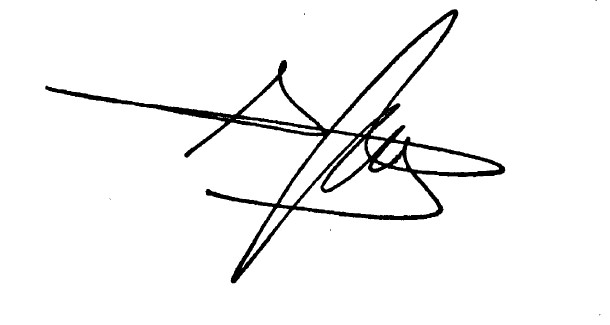
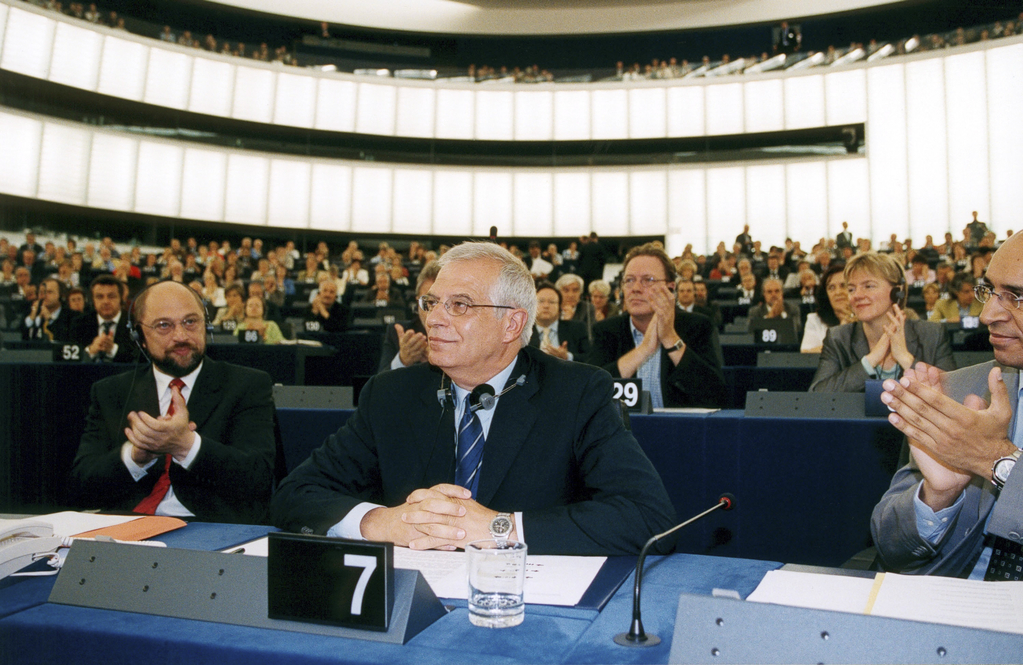 Election of the EP President Josep Borrell Fontelles during the plenary session in Strasbourg © European Union 2004 – European Parliament
Election of the EP President Josep Borrell Fontelles during the plenary session in Strasbourg © European Union 2004 – European Parliament
 Family photo of the new Bulgarian and Romanian Observers © European Union 2005 – European Parliament
Family photo of the new Bulgarian and Romanian Observers © European Union 2005 – European Parliament
 Plenary session of the Euro-Mediterranean Parliamentary Assembly (Euromed). Dietmar Nickell (L), Josep Borrel Fontelles (C), Fouad Mebazaa (R) © European Union 2006 – European Parliament
Plenary session of the Euro-Mediterranean Parliamentary Assembly (Euromed). Dietmar Nickell (L), Josep Borrel Fontelles (C), Fouad Mebazaa (R) © European Union 2006 – European Parliament
 EP President Josep Borrell Fontelles (R) meets with President of the Palestinian Authority Mahmud Abbas (L) in Strasbourg © European Union 2006 – European Parliament
EP President Josep Borrell Fontelles (R) meets with President of the Palestinian Authority Mahmud Abbas (L) in Strasbourg © European Union 2006 – European Parliament
